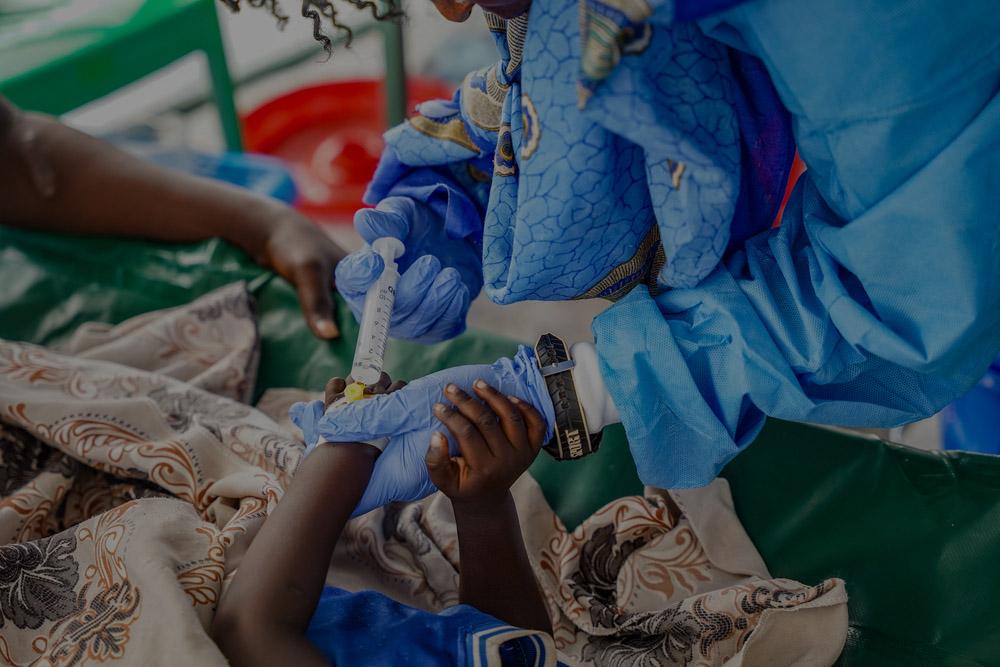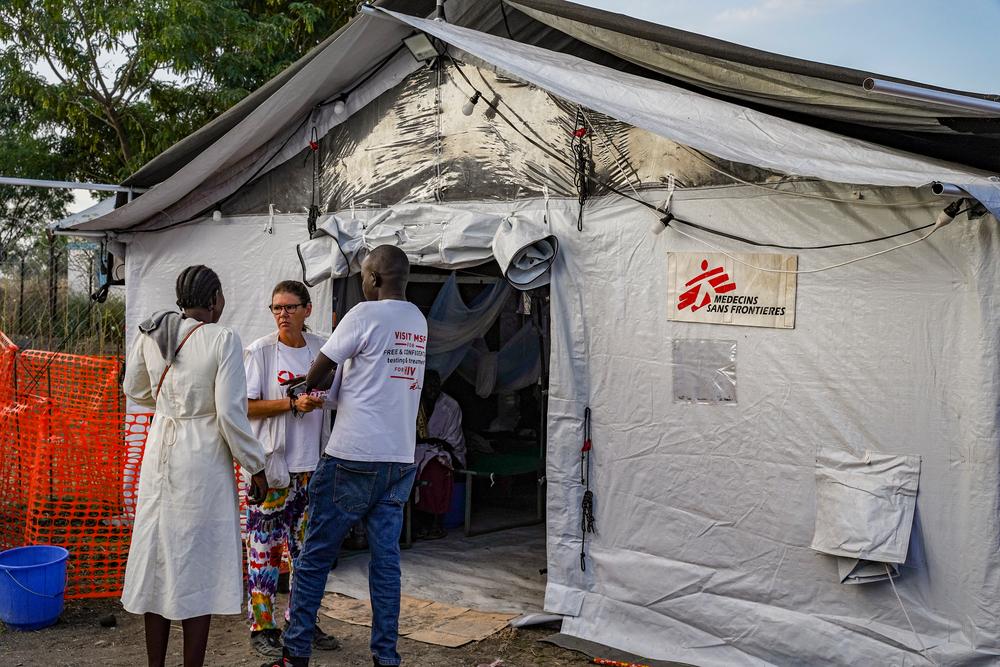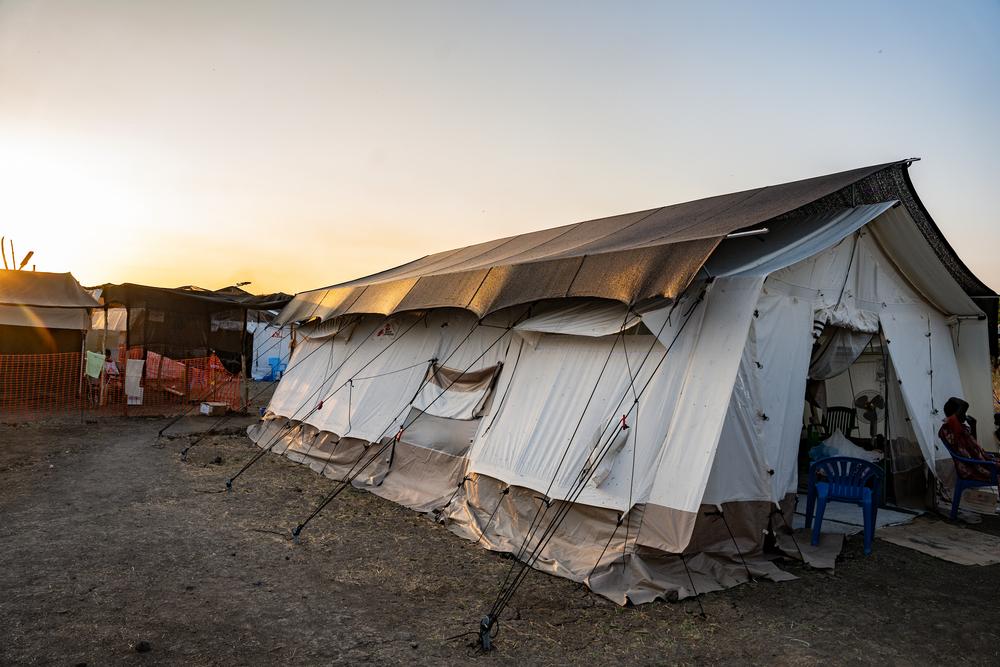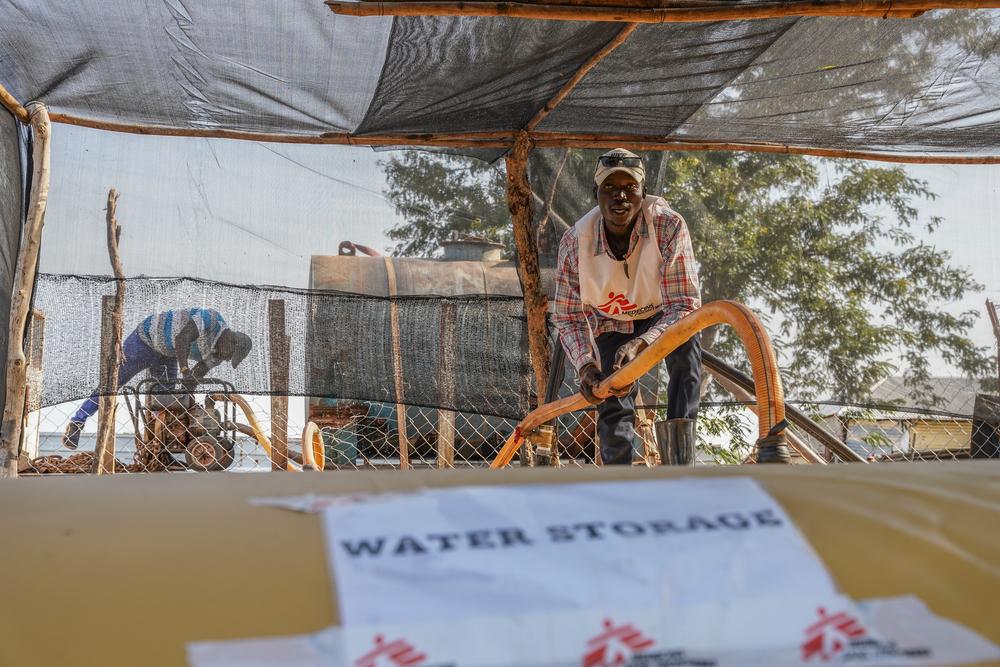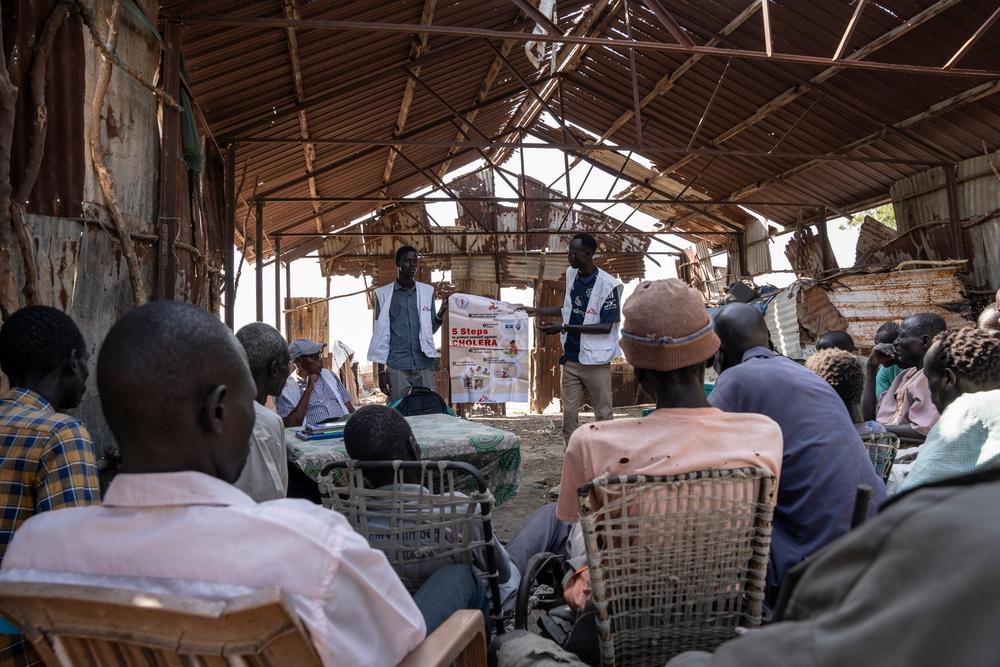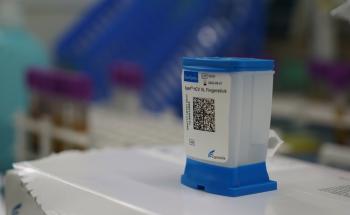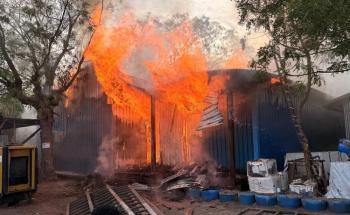Infectious diseases specialist Diyani Dewasurendra is on assignment in South Sudan when the first cholera cases arrive at the hospital. It’s time to act fast!
Every epidemic begins with a suspicion – a sudden rise in illness, recurring symptoms and the first severely ill patients. In crisis zones, infectious diseases can spread at lightning speed. Every minute counts when trying to contain them. The first 72 hours are critical: we need to act fast and strategically to save lives and prevent a disaster.
In 2023, I was on assignment in Malakal, South Sudan, when a cholera outbreak hit...
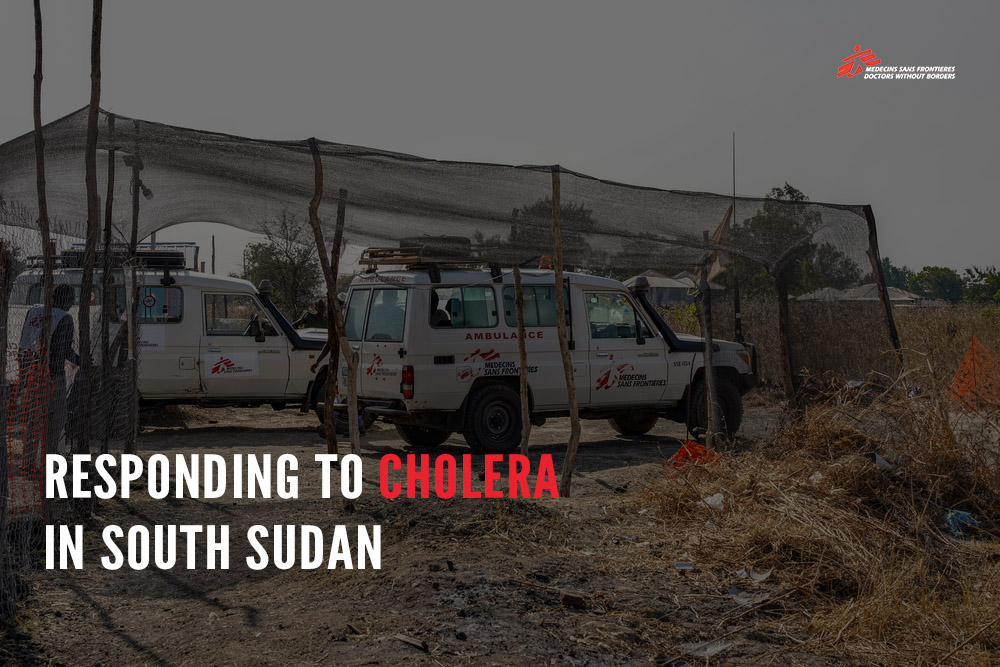
Cholera response in South Sudan
The first 72 hours are critical.
We need to act fast and strategically to save lives and prevent a disaster. Below are the key steps we took in response to the cholera outbreak in South Sudan:
Acting fast saves lives
The first 72 hours of an epidemic determine whether it can be contained or spirals into a disaster. In the case of the 2023 cholera outbreak, we were able to respond quickly and limit the number of cases to 1,471. After 90 days, on May 16th 2023, intervention was closed as the cases decreased significantly and the outbreak was contained.
This outbreak once again showed how crucial are early diagnosis, isolation, identifying the source of infection and fast vaccination. Each of these steps is vital to saving lives.
We work under extremely difficult conditions in crisis zones, but access to vaccines remains one of our most powerful tools in the fight against epidemics. At the same time, we must not forget that long-term solutions – such as access to clean water – are just as important to prevent future outbreaks.
When Every Minute Counts, The First 72 Hours of an Epidemic
Cholera vaccination
Cholera is an acute bacterial infection caused by Vibrio cholerae. It primarily spreads through contaminated water and food, particularly in regions with limited access to clean drinking water and inadequate hygiene infrastructure.
Every year, millions of people become infected with cholera. However, a vaccination can significantly reduce the risk of infection and provide long-lasting protection.
At Doctors Without Borders (MSF), we are actively engaged in the global fight against cholera. We run vaccination campaigns, educate communities, improve access to clean water, sanitation services and provide hygiene kits. And of course, we treat patients with cholera in our treatment centres during outbreaks.
An effective cholera vaccination provides important protection, particularly for people living in or travelling to endemic or high-risk areas. In addition to vaccination, preventive hygiene measures are essential to control the spread of the disease.
Cholera occurs worldwide, with the highest numbers of cases in regions with poor water systems and sanitation. According to the World Health Organization (WHO), up to 4 million people are infected with cholera every year, and up to 140,000 die from its consequences. (See: https://www.who.int/health-topics/cholera).
The disease is particularly prevalent in parts of Africa, Asia, and Latin America. In humanitarian emergencies, such as conflict zones or after natural hazards, the risk of outbreaks increases significantly, as people are often crowded together without access to clean water.
Symptoms of cholera can appear within just a few hours and up to a few days after infection. The disease is characterised by severe watery diarrhoea, which can lead to extreme dehydration, circulatory collapse, and – if left untreated – death.
However, with early treatment using oral rehydration solutions or intravenous fluids, over 99 per cent of patients recover fully.
In our medical projects, we operate specialised cholera treatment centres to care for infected patients and help stop the spread of the disease. These centres are structured to ensure isolation and safe care.
In acute emergencies, our teams can set up these treatment centres within days to respond quickly to outbreaks.
The cholera vaccination is a proven and effective tool for preventing infection. It is administered orally and is considered a live vaccine. The WHO recommends the vaccine for people living in endemic areas or travelling to high-risk regions.
After two doses, the vaccine provides around 85% protection, which remains at approximately 60% after three years. In outbreak situations, a single dose may be administered to protect as many people as possible quickly
The cholera vaccination is generally well tolerated. As with any vaccination, mild side effects may occur – such as stomach discomfort, nausea or diarrhoea.
In rare cases, patients may experience headaches or mild abdominal cramps. People with weakened immune systems or children under one year of age should speak to a GP before receiving the vaccine.
There is currently no useful replacement for the vaccination – the oral vaccine remains the most effective protection.
The World Health Organization strongly supports broader access to cholera vaccination, especially in crisis zones where outbreaks are common and health systems are overwhelmed.
We work closely with the WHO to coordinate vaccination efforts and improve access to vaccines. However, vaccine production remains a major challenge: demand often exceeds supply, particularly in emergencies. Global stock is kept at a level to respond to epidemics, but to not allow preventive campaigns.
Access to the vaccine is especially limited in humanitarian crises. In many cases, vaccines cannot be produced or delivered quickly enough. Logistical hurdles, such as disrupted supply chains or lack of refrigeration, further complicate vaccination campaigns, especially in remote areas.
A limited number of manufacturers and high production costs add to the global supply shortage.
Affordability is also an issue. In Austria, the cholera vaccine costs around 70 euros. While prices vary by country and provider, they remain out of reach for many people worldwide.
We advocate for better distribution and more flexible vaccination strategies, working with governments and the WHO to improve access to vaccines for all.
MSF is active worldwide in the fight against cholera. In 2023 alone, our teams supported the administration of over 36,000 cholera vaccinations in various countries.
In addition, we treated more than 70,000 cholera patients and distributed clean water to help prevent further infections.
Beyond emergency care, we work closely with local authorities to develop long-term solutions, including better access to clean water and improved hygiene infrastructure. In many of our project areas – such as in Lebanon and the Democratic Republic of Congo – our mobile teams provide daily education and treatment.
